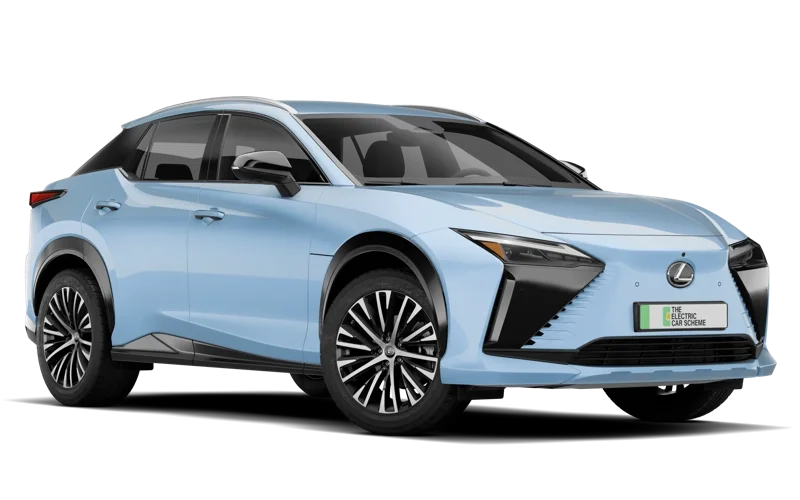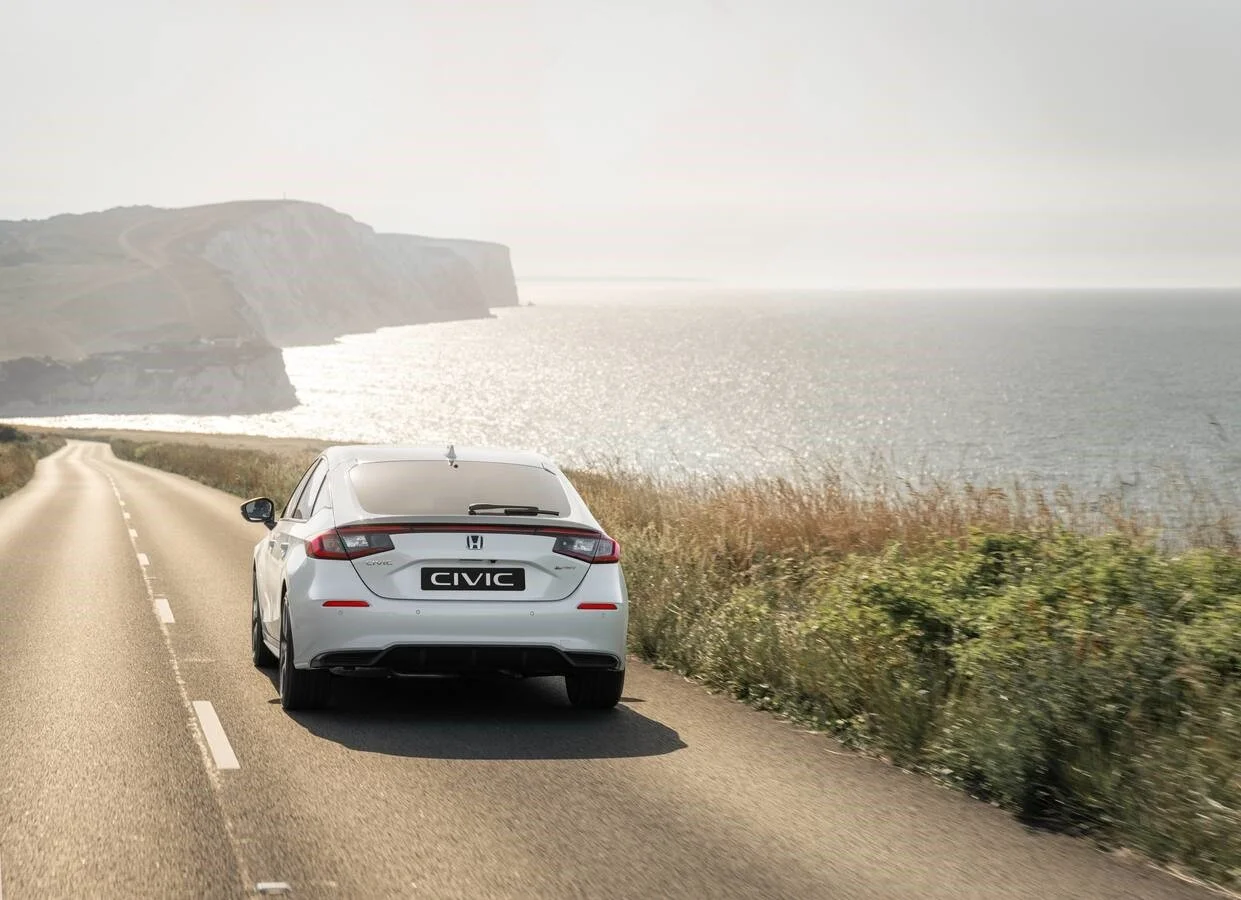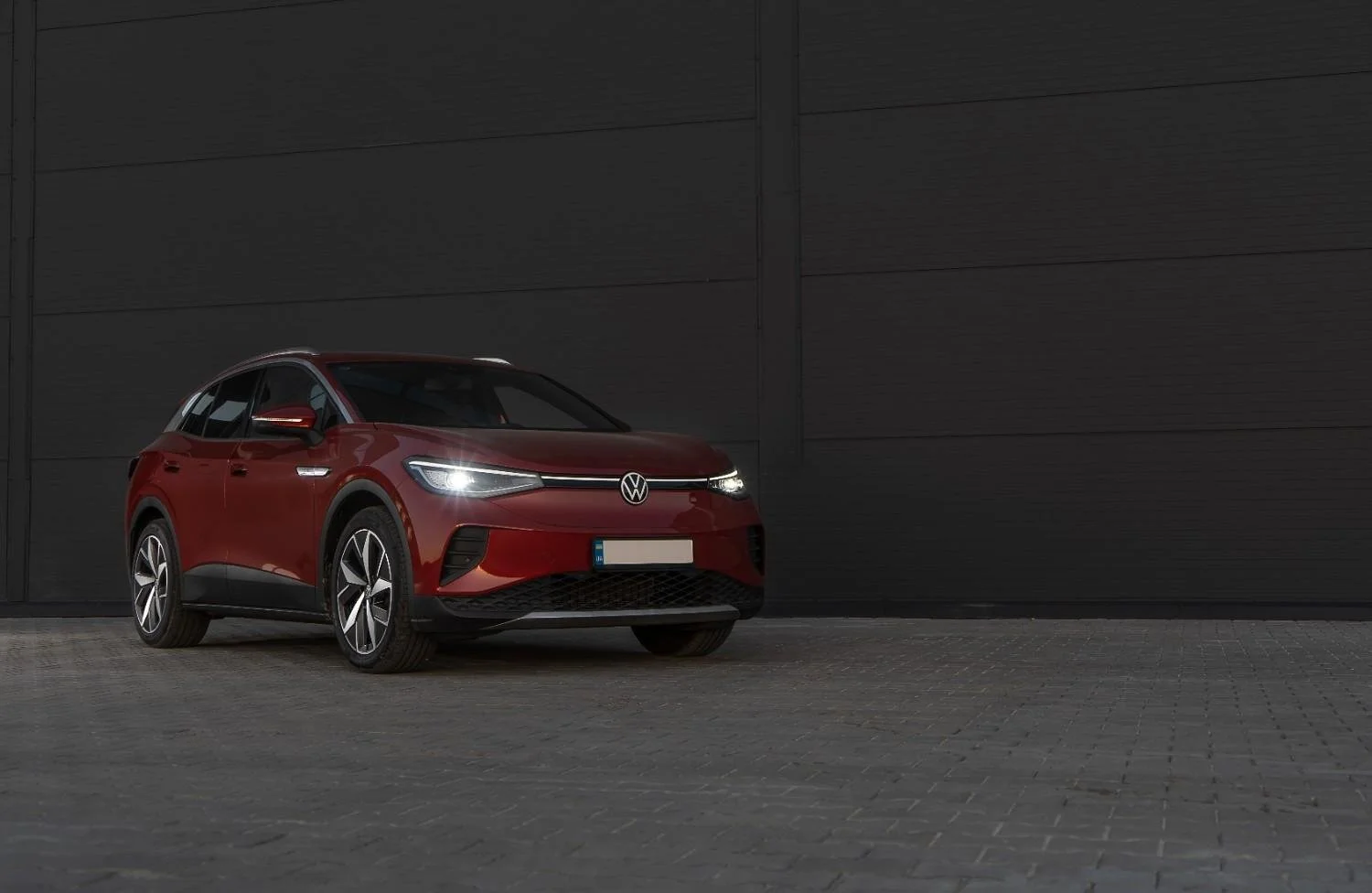Green Car Scheme Hybrid Options: Employee Benefits Guide
Source: Shutterstock
In September, sales of fully electric and hybrid vehicles accounted for more than half of all new car registrations in the UK, indicating that an increasing number of people are making more sustainable choices. While electric vehicles (EVs) represent the future, many employees aren’t yet ready to switch entirely. Charging access, driving habits, and vehicle availability all play a role. For employers, offering a green company car scheme that includes hybrid options provides an inclusive and practical route to lower‑emission travel.
Recent research shows that 48% of employees feel motivated by green benefits. By offering a hybrid salary sacrifice scheme, businesses can maximise engagement and demonstrate a balanced, people-first approach to sustainability.
This guide explores why hybrid inclusion matters, how it delivers financial and environmental benefits, and how to implement a successful green car scheme that supports your company’s journey to Net Zero!
Employee Demand for Green Options
The Data Behind The Demand
Recent research shows how important sustainable benefits are to employees (half of UK workers now prioritise in their choice of company benefits). If you’re a company offering a salary sacrifice car scheme, it makes sense that employees want the option to choose between hybrid, plug-in hybrid (PHEV), or full EVs based on their personal circumstances.
Employees in suburban or rural areas, where public charging infrastructure may still be developing, tend to favour plug-in hybrids for convenience. Meanwhile, employees living in towns or cities with regular short commutes are more likely to go fully electric. This variation highlights why mixed-fleet schemes outperform one-size-fits-all alternatives.
Generational Perspectives
Younger generations - particularly Millennials and Gen Z - see sustainability as a non-negotiable expectation when looking for a job. Over 40% of “Gen Zers” have rejected job offers or not applied to companies they perceive as unethical. They often view employer-led green initiatives as a sign of company values. Gen X and Baby Boomers, however, tend to prioritise financial and practical considerations, valuing the flexibility hybrids provide during the transition phase. A balanced offering helps engage every demographic.
Choice Can Drive Engagement
Providing flexibility within employee benefit schemes increases overall participation and satisfaction. When employees feel empowered to choose, they are more likely to engage, advocate, and stay with the organisation. Hybrid salary sacrifice schemes are sustainability tools as well as retention and motivation levers.
Hybrid Options in Green Schemes
Modern hybrid technology has evolved, with several key vehicle types suited to green car schemes:
Self-charging hybrids: Use regenerative braking to recharge, offering lower emissions without plug-in requirements.
Plug-in hybrids (PHEVs): Allow short all-electric journeys before switching seamlessly to petrol for longer trips - ideal when charging access is inconsistent.
Range-extended EVs: Operate primarily as electric vehicles but include a small onboard generator to extend range when the battery is depleted.
Environmental Impact Comparison
While plug-in hybrids are not zero-emission, their carbon footprint can be lower depending on how you use and charge your car. However, it is important to note that from January 2025, the UK government introduced stricter emissions testing for PHEVs, which affects how they are taxed.
Employers that include hybrids in their fleet mix can make measurable progress toward sustainability goals, even before achieving a fully electric lineup.
Why The Electric Car Scheme now includes hybrids
At, The Electric Car Scheme, we have expanded our offering to include hybrid vehicles alongside the electric car range, recognising that the transition to Net Zero requires practical, inclusive solutions. This means employees can now choose from:
New and used electric vehicles: The most affordable route to zero-emission driving
Plug-in hybrid vehicles: Flexibility for those needing extended range or lacking home charging
This flexibility means every employee can participate in your green mobility programme, regardless of their circumstances!
Financial Benefits for Employees
The green car scheme hybrid approach isn't just environmentally responsible… It's financially smart. By offering vehicles through salary sacrifice, employees can save thousands compared to leasing a car privately.
How Salary Sacrifice Works
When an employee participates in a salary sacrifice scheme, they agree to give up a portion of their gross salary in exchange for a non-cash benefit (the car). This means their taxable income is reduced before Income Tax and National Insurance contributions are calculated, resulting in significant savings.
Salary sacrifice makes premium green vehicles accessible to employees who might otherwise be priced out of the EV or hybrid market. This creates fair access to sustainable transport and helps employers show commitment to equitable, inclusive benefits.
Image source: Stellantis Media
Understanding Benefit-in-Kind (BiK) Tax
For EVs, the Benefit-in-Kind tax rate is significantly lower than conventional vehicles. Here's how BiK rates are structured for 2025/26 and beyond:
Electric vehicles:
2025/26: 3%
2026/27: 4%
2027/28: 5%
2028/29: 7%
2029/30: 9% BiK rate (capped)
Plug-in hybrid vehicles (1-50g CO₂/km):
2025/26: 3-15% BiK rate (depending on electric range)
2028/29: 18% BiK rate
2029/30: 19% BiK rate
Petrol/diesel vehicles:
Current rates: Up to 37% BiK rate
2028/29: 38% BiK rate
2029/30: 39% BiK rate (maximum)
This progressive structure means that while BiK rates will gradually increase, electric and plug-in hybrid vehicles will continue to offer substantial tax advantages over petrol and diesel cars for years to come.
Salary Sacrifice Cost Breakdown through The Electric Car Scheme
Here’s an example of how much an employee earning £70,000 (40% taxpayer) would pay leasing a Hybrid or electric Lexus for 4 years on a flat payment profile through The Electric Car Scheme.
| Savings breakdown | Lexus NX Hybrid E-CVT | Lexus RZ Electric (77kWh) |
|---|---|---|
| Average monthly salary sacrifice (inc VAT | £690 | £769 |
| Employee income savings | -£276 | -£308 |
| Employee national insurance savings | -£14 | -£15 |
| Average benefit-in-kind tax over term | £364 | £104 |
| Net cost/You pay | £764 | £550 |
If you were to lease the hybrid Lexus NX, you’d save £290 per month through National Insurance and income tax savings.
If you’d rather have an electric powertrain, leasing the RZ through salary sacrifice will save you £323 per month, taking the cost down from £769 to £550. The bonus is that this cost includes maintenance, servicing, and breakdown cover!
While hybrids have slightly higher BiK rates than pure EVs, they still deliver substantial savings through salary sacrifice. The exact amount depends on the vehicle's P11D value, CO₂ emissions, and electric range.
Complete Employer Protection
One of the biggest barriers for employers considering salary sacrifice schemes is the financial risk if an employee leaves. The Electric Car Scheme's Complete Employer Protection eliminates this concern.
What's covered:
Resignation (from 3 months into the lease)
Redundancy (immediately)
Dismissal (immediately)
Long-term sickness (immediately)
Parental leave (immediately)
Loss of licence - medical (immediately)
Death (immediately)
Key features:
No excess payments required
No caps or limits on usage
Protection if the employee doesn't pay early termination fees or damage costs
Covers both electric and hybrid vehicles
This means employers can offer green car schemes with confidence, knowing they won't face unexpected costs if circumstances change!
ESG and Sustainability Impact
For businesses, introducing hybrid options within green car schemes directly supports corporate ESG (Environmental, Social & Governance) strategies.
Carbon Footprint Reduction
Hybrids help reduce overall fleet emissions. Even with partial uptake across a fleet - for example, switching from traditional combustion cars to plug-in hybrids when full EVs are not yet viable - companies can still record measurable CO₂ reductions and use these statistics in their sustainability reporting.
Image source: Honda Newsroom
Corporate Reporting And Transparency
Including uptake data (EV + hybrid) in sustainability reports demonstrates a measurable commitment to environmental goals. These metrics can align with frameworks like the Task Force on Climate-related Financial Disclosures (TCFD) or the Global Reporting Initiative standards.
The Electric Car Scheme provides straightforward reporting tools, including:
Automated monthly payroll reports
HMRC compliance documentation (P46 Car, P11D, P11D(b))
Annual impact report, including Scope 3 carbon emission reductions
Clear BiK, National Insurance, and VAT calculations
This makes it simple for HR and finance teams to track progress and report on sustainability commitments.
Stakeholder Perception and Brand Value
A diverse green fleet shows thoughtful transition planning, rather than jumping straight to all-electric and risking employee exclusion or operational barriers. It strengthens employer reputation, particularly in sectors competing for talent aligned with sustainability values.
Implementation Best Practices
Image source: Shutterstock
Introducing a hybrid salary sacrifice scheme has to be done with care to make sure your employees understand the benefit.
Getting Started with The Electric Car Scheme
1. Initial Setup (simple and fast):
Product review with a dedicated account manager
Portal setup and company sign-up
Credit check process for leases
Launch scheme for employees
2. Employee Education:
Personalised tax savings calculations
Webinars and launch events to build understanding
EV specialists on hand to help employees choose their ideal vehicle
3. Ongoing Support:
Straightforward monthly payroll input
Regular sustainability impact reporting
Employee satisfaction monitoring
Pilot programme design
Start with a limited selection of EVs and hybrids, monitoring employee interest and usage patterns. The Electric Car Scheme offers:
New electric vehicles - Latest models with 2-4 year leases
Used electric vehicles - The most affordable entry point to EV driving (1-3 year leases)
Plug-in hybrid vehicles - Bridging the gap for employees requiring flexibility
Subscription options - Short-term flexible hires (12 months+)
Feedback Collection
Conduct regular surveys and focus groups to assess satisfaction, barriers, and desired model options. Use this data to fine-tune scheme rules and provider relationships.
Continuous improvement
Review participation rates, cost savings, and emissions data quarterly. Share progress transparently with both management and employees to maintain engagement.
The Electric Car Scheme runs at net zero cost to employers - your fee is equivalent to your employer’s National Insurance savings and VAT recovery, meaning you can offer this benefit without impacting your bottom line.
Why Choose The Electric Car Scheme?
There are lots of salary sacrifice providers to choose from - we understand that choosing the right one may seem overwhelming. At The Electric Car Scheme, we offer a wide range of new and used EVs and hybrids for your employees to choose from, whilst also supporting employers every step of the way. Here are some highlights of what we offer:
Complete Employer Protection: Eliminate financial worry if employees leave - comprehensive coverage with no excess payments or usage caps.
Best prices available: Access to competitive rates across new EVs, used EVs, and hybrid vehicles from all major manufacturers.
Zero cost to your business: Employer National Insurance savings and VAT recovery cover our fees entirely.
Comprehensive packages: Insurance, maintenance, servicing, breakdown cover, and home charger installation all included.
The Charge Scheme: Newly launched salary sacrifice charging, saving employees 20-50% on charging costs at home and in public (only available to EV drivers)
Trusted service: Rated by over 1,500 UK employers, with dedicated HR, finance, and EV specialist support.
Green credentials: The UK's first B Corp Certified salary sacrifice scheme, helping your business achieve ESG goals while supporting employees.
Employers that communicate this balance effectively are seen as credible, forward-thinking partners in sustainability.
Hybrid vehicles play an important role in the UK's transition to electric mobility. A green car scheme hybrid approach allows employers to meet diverse employee needs, enhance financial well-being, and progress ESG goals simultaneously.
By integrating hybrid and EV options within salary sacrifice through The Electric Car Scheme, businesses create a benefits package that's inclusive, future-focused, and aligned with Net Zero ambitions. With Complete Risk Protection, comprehensive support, and genuine cost savings for employees, every team member can contribute to a greener, more sustainable future - one journey at a time.
Ready to explore how The Electric Car Scheme can support your sustainability goals? Visit our salary sacrifice calculator to see potential savings, or speak with our team about implementing a hybrid-inclusive scheme at your organisation.
Are you an employer?
BOOK A DEMOAre you an employee?
SEE AVAILABLE CARSYou might also like…
Last updated: 23/10/2025
Our pricing is based on data collected from The Electric Car Scheme quote tool. All final pricing is inclusive of VAT. All prices above are based on the following lease terms; 10,000 miles pa, 36 months, and are inclusive of Maintenance and Breakdown Cover. The Electric Car Scheme’s terms and conditions apply. All deals are subject to credit approval and availability. All deals are subject to excess mileage and damage charges. Prices are calculated based on the following tax saving assumptions; England & Wales, 40% tax rate. The above prices were calculated using a flat payment profile. The Electric Car Scheme Limited provides services for the administration of your salary sacrifice employee benefits. The Electric Car Scheme Holdings Limited is a member of the BVRLA (10608), is authorised and regulated by the FCA under FRN 968270, is an Appointed Representative of Marshall Management Services Ltd under FRN 667174, and is a credit broker and not a lender or insurance provider.
Copyright and Image Usage: All images used on this website are either licensed for commercial use or used with express permission from the copyright holders, in compliance with UK and EU copyright law. We are committed to respecting intellectual property rights and maintaining full compliance with applicable regulations. If you have any questions or concerns regarding image usage or copyright matters, please contact us at marketing@electriccarscheme.com and we will address them promptly.










